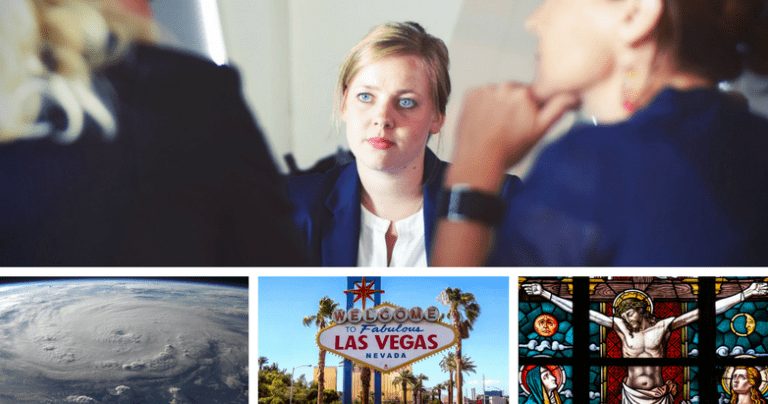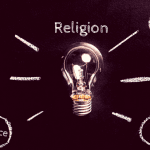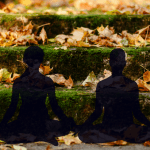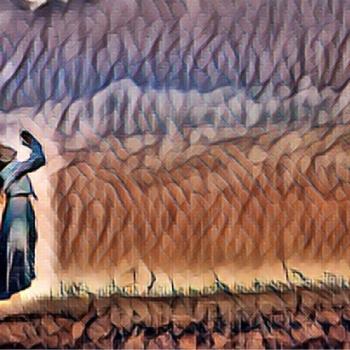
My fellow Americans,
I think it’s time we talked. Not argued, but talked, you know, like adults do when they resolve their differences. Before we do, though, we need to make some adjustments to our approach.
To assist with that process, allow me to reference three ideas I have recently written about—each of them addressing major points in regards to dialogue and reconciliation—and then quote some of the world’s great religious figures to encourage each of us to do what is hard.
The Human Persona and the Ideological Persona
In late September, I wrote an article referencing the work of Padraig O’Malley, who was a facilitator during the Northern Ireland peace process.
He made the case that each human being has two personas, the ideological persona, and the human persona. He pointed out that the only way to dehumanize the other is to see him or her only in terms of ideology and forget their humanity.
Think about that for a moment. Whenever we use an ideological label to describe a person, we fall into the trap of dehumanizing. It is a great way to polarize and seems to have worked in recent elections, both in America and Britain, but it is a lousy way to live, and can only lead to further divisions and hostilities.
Based on O’Malley’s concept, the first step towards dialogue is to remember that we are human and the person on the other side of the discussion is also human, not merely a Christian or a Muslim, a conservative or a liberal, a gun law reformer or a gun rights activist, a climate warrior or a climate denier—those are ideological stances we have taken, not something we are born with.
That is why we must acknowledge the other person’s humanity before we have an ideological discussion.
Being on the “Right Side”
In another article that I authored in September, I wrote about how wanting to be a good person can turn on a dime, how attraction to one thing can automatically prompt repulsion for its opposite, and how well-meaning people who are attracted to what they perceive as good, can, sometimes inadvertently, start hating the opposite of what they so love.
It is an oxymoron, for sure, but a valid principle.
If you are completely convinced that you are on the “right side” of an argument, that you are defending something good, true, beautiful, and treasured, then you are in danger of starting to hate the opposite view.
The stronger the attraction to the worldview, the stronger the repulsion becomes.
As I concluded:
“Our love for one thing can, if we are not careful, create a hate for another.”
Unfortunately, when people argue, both sides think they are on the “right side,” and that leads to increased hostilities.
Therefore, the second step is to remember that our attraction to one worldview can create a strong repulsion of opposing worldviews.
I am not saying that some worldviews don’t deserve repulsion, but I am saying that we need to approach the matter with humility rather than blind certainty.
Lessons from Interfaith Dialogue
Finally, last week, after the horrible shooting in Las Vegas, I wrote about how we, as a country, need to use some of the lessons learned by interfaith activists to have what I call interpolitical discussions.
Here are some of the principles* I referenced:
- The primary purpose of dialogue is to learn.
- Dialogue is two-sided. Both sides must be looking for a solution.
- Each participant must approach dialogue with honesty and sincerity.
- Participants can’t have hard and fast assumptions at the start.
- Dialogue can only happen between equals.
- Mutual trust is the basis of dialogue.
- Participants must be at least minimally critical of themselves.
*Created by Scarboro Missions
In short, the third step is to be willing to learn and willing to compromise.
There is Nothing Easy About It
Getting angry is easy. Feeling justified in that anger feels great. Feeling like you belong to a group because you are all angry and upset about the same thing is a strong bonding experience. Looking down your nose at people and feeling superior, well, it can feel like you are on top of the world.
I get it.
I’ve done it.
I still fall into the trap.
And yet, all the great teachers from the world’s religions have urged us to do the opposite, to do what is hard.
Jesus* the Christ of Nazareth said:
“Ye have heard that it hath been said, an eye for an eye, and a tooth for a tooth, but I say unto you, that ye resist not evil but whosoever shall smite thee on thy right cheek, turn to him the other also.”
Turn the other cheek. That is difficult to do, especially if you are landing punch after punch on your Twitter feed.
*See my article about why we should use his original Aramaic name, Yeshu.
The Buddha said:
“For hatred can never put an end to hatred; love alone can. This is an unalterable law.”
It can feel good to hate, at least, temporarily, but hate rarely results in a good outcome. If we can’t find love in our hearts, then we must, at a minimum, be willing to move in that direction.
The 20th Century non-violent visionary, Mahatma Gandhi said:
“It is easy enough to be friendly to one’s friends. But to befriend the one who regards himself as your enemy is the quintessence of true religion. The other is mere business.”
If the only people you are friendly with are the ones who are in your social circle, who share your beliefs, who fit into your tribe, then you are doing the easy stuff.
And, in poetic form, the Islamic scholar, Sufi mystic, and philosopher Ibn al-Arabi said:
“My heart has become capable of every form:
It is a pasture for gazelles and a convent for Christian monks,
And a temple for idols and the pilgrim’s Kaa’ba,
And the tables of the Torah and the book of the Qur’an
I follow the religion of Love: whatever way Love’s camels take,
That is my religion and my faith.”
Those who follow the religion of love, no matter their outward label, are the potential peacemakers.
Giving into our anger, frustration, and fear is the human thing to do. We meet hate with hate. But, as the masters have taught us, we are capable of more than that. It’s hard work, but we can rise above hatred.
Take Small Steps
During our many hikes together, my grandmother taught me a great lesson. “We can walk all day if we take small steps,” she used to say.
The same is true for us in modern divided America.
We can take small steps, start having dialogues, make ripples, and eventually… eventually, it may lead to something better.
So ask yourself:
- Am I willing to do what is hard?
- Am I willing to remember the other person’s humanity?
- Am I willing to balance attraction to my preferred ideology with humility?
- Am I willing to learn and compromise?
If you answer yes to at least one of those questions, there is hope.
Together we can change the tone in this country. But, for that to happen, we need to tune out the noise, the dividing forces, see each other as human beings, and start talking.
We can be critical of each other’s ideas, but when we forget each other’s humanity, we are inching closer to violence.
Gudjon Bergmann
Author & Interfaith Minister
For more information about my work, visit www.experifaith.org.
Pictures: Pexels.com CC0 License












